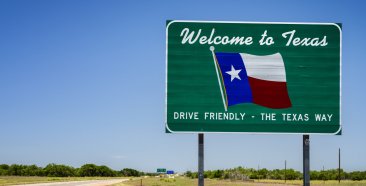
How Does a DUI Affect My Car Insurance Rate?
DUI insurance rates refer to the cost of auto insurance for drivers who have been convicted of driving under the influence of alcohol or drugs. These rates are typically higher than standard insurance rates due to the increased risk associated with drunk driving. Insurance companies use a variety of factors, including the severity of the DUI offense and the individual’s driving history, to determine the cost of insurance for a DUI conviction. It is important for drivers to understand the impact of a conviction on their DUI insurance rates and take steps to find the best coverage at the most affordable price.
A clean driving record is a vital component for anyone who wants to ensure their safety and that of others on the road. It means that the driver has a history of following traffic laws and regulations, and has not been involved in any accidents or received any traffic violations. This is essential for getting the best insurance rates and proves the driver’s responsibility and reliability. A clean driving record also shows that the driver is a safe and conscientious individual who takes the responsibilities of driving seriously. It is a reflection of a driver’s driving skills and helps to increase the level of trust and confidence other drivers have when sharing the road with them.
How much can a DUI raise your car insurance rate?
After a conviction for DUI, you’ll be paying significantly more for your car insurance. DUI insurance is often more expensive than other car insurance, but over time with a history of safe driving, your rates can go back down.
Getting a DUI is embarrassing and has significant consequences. We all make mistakes, so the key is to deal with the fines and penalties and move forward. Finding affordable DUI solutions , can help you put it behind you and get back on the road safely and quickly. Keep in mind that with a DUI in your background, the policy rate increases.
Let’s look at the specific process in three states.
DUI in California
In California, a first-offense DUI is a misdemeanor. A DUI conviction stays on your record for ten years to show prior offenses that impact insurance cost eligibility.
For a first DUI, you’ll pay fines that can get into several thousand dollars. You could receive 48 hours to six months in jail. However, in most cases, a judge orders probation with no mandatory jail time. You’ll need to complete DUI school, which consists of 30 hours of classes.
You’ll face a six-month license suspension, but you can generally apply for a special restricted license that allows you to drive to work and school. You’ll also be required to install and use an ignition interlock device (IID) for the first six months you resume driving, whether on a restricted or regular license.
When you start driving again, you’ll need your insurance company to file an SR-22 in California. This means you’ll need to ask your insurance company for DUI insurance in California.
Texas DUI
If you’re driving under the influence in Texas, you’ll be charged with a DWI. A first offense requires three days in jail followed by probation, along with thousands of dollars in fines. You’ll need to take a 12-hour DWI course. Online courses are not accepted, so you’ll need to attend in person.
As a first-time offender, you can lose your license for 90 days to a year. However, like in California, you can apply for a restricted license right away if you use an interlock device. To resume driving, you’ll need DUI Insurance in Texas with an SR-22.
DUI in Illinois
You will be charged with a DUI in Illinois if your blood alcohol level is above 0.08%, and penalties will be more severe if it’s above 0.16%. You could face jail time, community service hours, and thousands of dollars in fines.
DUI offenders must also complete a drug and alcohol evaluation, which may lead to enrollment in a recommended treatment program. There are also DUI impact classes where DUI defendants hear about the results of impaired driving.
Illinois suspends the license of a first-time offender for a minimum of six months. However, you may be able to get a driving permit if you use a breath alcohol ignition interlock device. You’ll also need an SR-22 and DUI insurance.
What Is an SR-22?
When you regain your license after a DUI, the state will require your insurance company to verify that you have an insurance policy with at least the state minimum requirements. The way the insurer makes that guarantee is by sending an SR-22 form to the state.
If your insurance lapses, the insurance company must immediately notify the state. You may face license revocation or additional fines.
Why Is DUI Insurance So Expensive?
An SR-22 doesn’t cost a lot on its own. Usually, there’s a one-time filing fee of $25. You don’t have to pay again unless the insurance policy lapses and has to be reissued.
However, DUI insurance is generally costly. There are two reasons for this: the surcharge for your driving activity (like tickets and DUI) and your overall risk profile.
Surcharges for Driving Activity with a DUI
When you get into an accident or have a driving violation, the activity is listed on your auto insurance policy for three or more years. The more serious the offense, the higher the charge will be that’s associated with it. A DUI is considered a very serious incident, so the surcharge is quite expensive.
After the required years have passed, the activity surcharge will be removed at the next renewal. This should improve your insurance rates significantly, but it won’t completely return to normal. A DUI significantly impacts the overall risk of you having additional tickets or accidents, which means it can change your risk category.
Your Risk Category After a DUI
Someone who has been driving for many years with no tickets and accidents will be a preferred risk, and they get the lowest rates. Someone with less experience, or a driver with a few tickets, is a standard risk with medium rates. A person with a DUI, or many tickets and accidents, is a high-risk driver and has higher rates.
A DUI will be considered as part of your risk profile for 10 years in some states. That means long after you are no longer paying a specific amount of money for the incident, it can still put you in a higher risk rating.
Over time, as you drive safely without additional incidents, your insurance rates will decrease.
How Can I Lower the Cost of My DUI Insurance?
You can possibly lower the cost of your DUI insurance in numerous ways, including shopping around and comparing rates, looking at various car insurance discounts and choosing a higher deductible.

What can you do to improve your rates? Here are 5 ideas.
1. Take a Defensive Driver Class
We know you’ve already taken a ton of court-ordered classes to get your license back. Unfortunately, those don’t count for a discount on your insurance. However, there are courses available in almost every state that can give you a discount. It is always important to keep in mind that any type of infraction affects your driving record.
If you’re curious which defensive driver classes we can offer discounts for, contact us for more information today!
2. Bundle Multiple Policies
Look at other insurance products besides car insurance. If you need homeowners or renters insurance, you can bundle this with your car insurance and get a multi-policy discount. You might already have homeowners or renters insurance in place, but why not get a quote with a different carrier? You might be able to save money on both policies!
3. Consider the Car You Drive
When you have high-risk car insurance, it might be a good idea to drive an older used car instead. This allows you to save money because you might not need comprehensive and collision coverage if you don’t have a loan.
Older, reliable cars are often less expensive to fix, so even if you need additional coverage, the premium may be less. If you’re in the market for a car after you get your license back, be sure to get insurance quotes before you make your decision.
4. Update Your Driving Mileage
After a DUI, you have restrictions on your driving for several months up to a year. If that means you’re driving fewer miles than normal, be sure to let your agent know. Your driving habits reflect your usage, which might lower your premium.
The less someone is driving, the less chance they have of being in an accident. Your rates should reflect that, so be sure you update your driving information regularly.
5. Review Your Deductibles
If you have to have comprehensive and collision coverage on your car, you might consider raising the deductible. The deductible is the amount you pay if your vehicle is damaged, and then the insurance company pays the rest.
For instance, if there was $3,000 of damage to your car and your deductible was $500, the insurance company would pay $2,500, and you’d be responsible for the deductible amount. If you raise the deductible, your insurance premium will be lower.
Just make sure you don’t raise it so high that you put yourself in a financial bind if your car needs to be fixed due to an insurance claim.
Getting Back on the Road after a DUI
A DUI’s consequences depend on the state you were driving in, the blood alcohol level you had, and if you have previous DUI offenses. If you are under 21, the penalties are likely to be more severe.
In the immediate aftermath of a DUI, you probably won’t be able to drive for several months. Once you’ve attended your hearings, you’ll need to pay all associated fines. Most states also require DUI traffic school, a class where you learn the consequences of drinking and driving and talk about making safer choices.
Freeway Insurance Can Help With DUI Insurance Today
Needing DUI insurance can be intimidating, but don’t worry. At Freeway Insurance, we specialize in helping you get back on the road quickly and safely.
We know all about how to file an SR-22 with the state and ensure you have the coverage you need to get back on your feet. If you need a quote on insurance after a DUI, don’t hesitate and contact us today!



